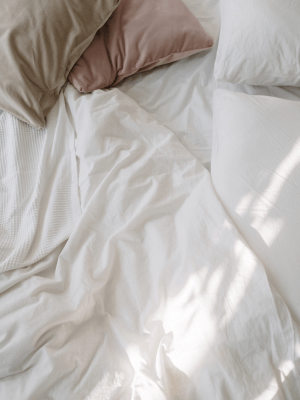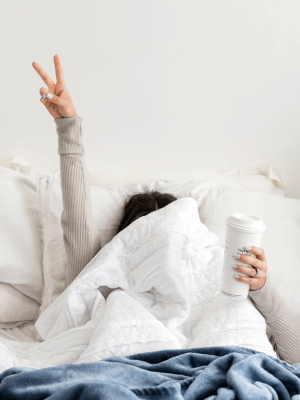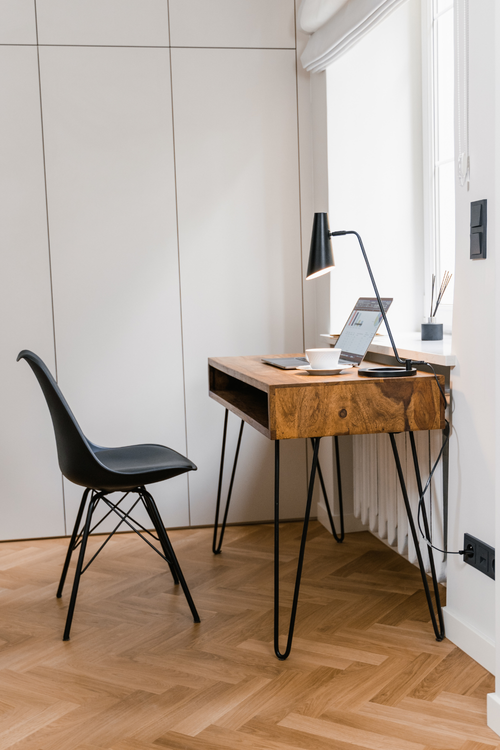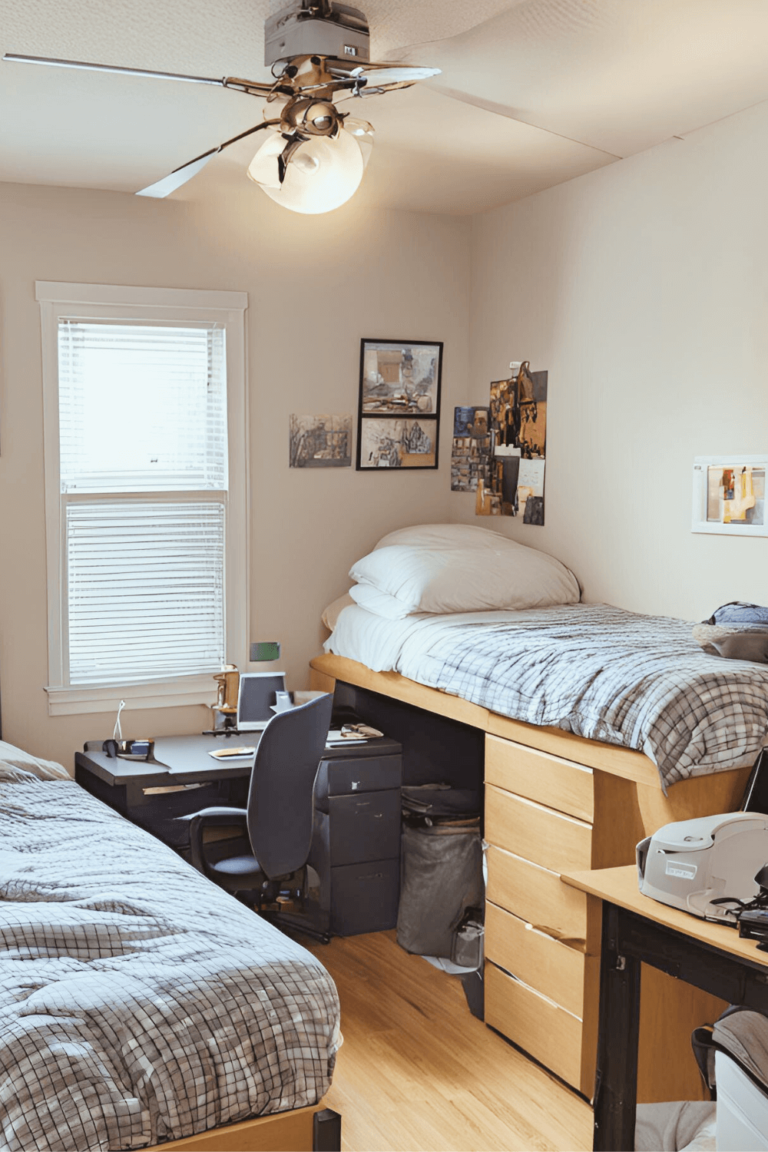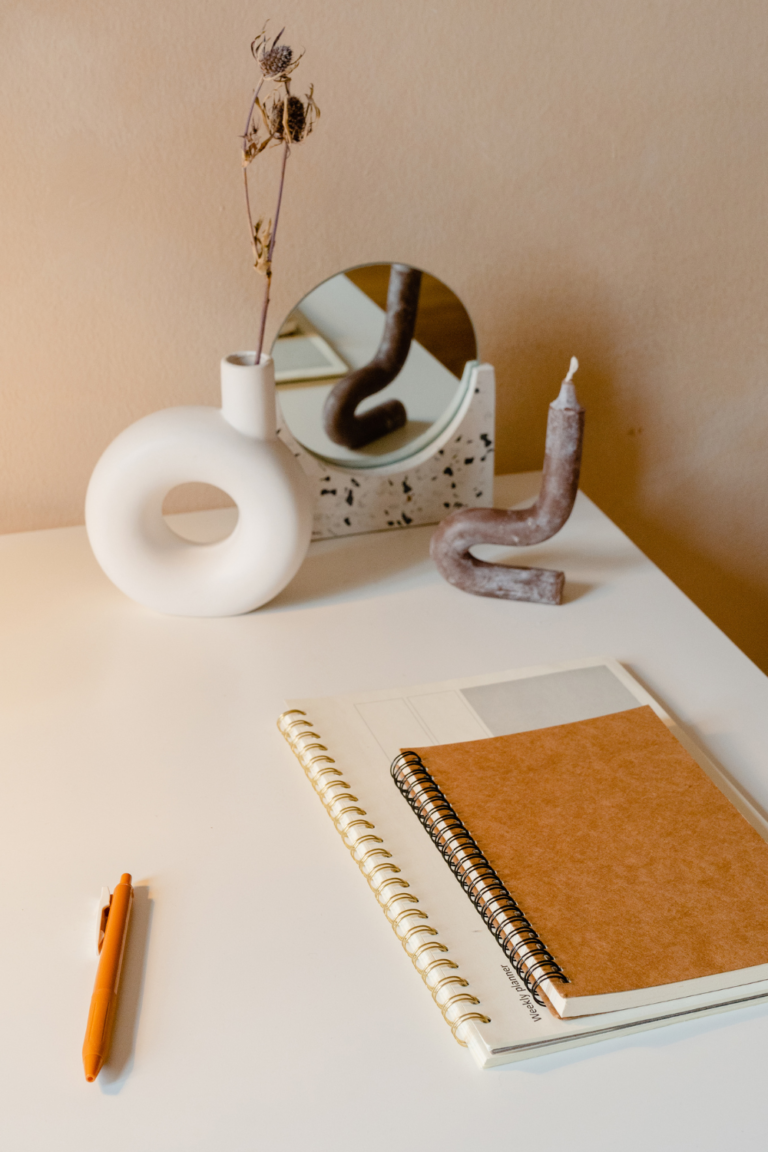The Best Ways How to Increase REM Sleep – Improve Sleep
Estimated reading time: 10 minutes
Here are some of the best tips for how to increase REM sleep today! You need these tips to help you improve your sleep now!
This post may contain affiliate links, which means I’ll receive a commission if you purchase through my link, at no extra cost to you. Please read full disclosure here.
As an Amazon Affiliate I earn from qualifying purchases.

How To Increase REM Sleep – What Causes Poor Sleep Quality?
Poor sleep quality can be caused by several factors, including:
- Stress and anxiety when you’re feeling stressed or anxious, it can be difficult to relax and fall asleep. You may also find yourself waking up frequently throughout the night or having trouble staying asleep. Stress and anxiety can lead to physical symptoms like muscle tension and increased heart rate, which can further disrupt sleep.
- Poor sleep habits: Going to bed too late or too early, irregular sleep schedule, napping during the day, using electronic devices before bed, and consuming caffeine, nicotine, or alcohol can all contribute to poor sleep quality.
- Uncomfortable sleep environment: Is your room too hot or too cold, with uncomfortable bedding, noise, and too much light? additionally, a poor-quality mattress can lead to aches and pains that can disrupt sleep.
- Caffeine, nicotine, or alcohol consumptionCaffeine, nicotine, and alcohol consumption can all contribute to poor sleep quality.
- Caffeine is a stimulant that can interfere with your ability to fall asleep and stay asleep.
- Nicotine is also a stimulant that can cause difficulty falling asleep and lead to frequent awakenings throughout the night.
- While alcohol may initially make you feel drowsy, it can disrupt the quality of your sleep and lead to frequent awakenings during the night.
More Things That Can Effect Sleep Quality
- Irregular sleep schedule or jet lag: If you go to bed at different times each night or have an inconsistent sleep schedule, your body may struggle to regulate its internal clock. Additionally, irregular sleep schedules can disrupt the natural circadian rhythms that govern our sleep-wake cycles, which can lead to feelings of fatigue and grogginess during the day.
- Sleep disorders, such as insomnia or sleep apnea
- Insomnia is a sleep disorder characterized by difficulty falling asleep, staying asleep, or both. Sleep apnea is a disorder in which breathing is repeatedly interrupted during sleep.
How Can I Sleep Better At Night Naturally?
Here are 10 easy ways to improve the quality of your sleep and help you feel more refreshed!
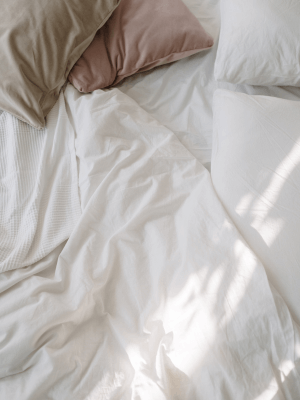
STEP 1: STICK TO A SLEEP SCHEDULE.
This is the most critical step … Why?
Consistent Sleep Is Better Than Sleeping Longer.
Did you read that?? — Sleeping better is more effective than sleeping longer.
Click here for an article published in the National Library of Medicine discussing the findings of researchers discussing the importance of sleep quality and how it is more impactful than even sleep quantity. (Kohyama)
How Can I Stick To A Sleep Schedule?
Trust me, as a true “night owl” I understand how difficult it can be to go to bed at a reasonable hour.
Here are some tips on how to stick to a sleep schedule:
- Set a consistent bedtime and wake-up time, and stick to it even on weekends or days off.
- Create a relaxing bedtime routine that includes activities like reading or taking a warm bath.
- Try to avoid using electronic devices before bed, as the blue light can disrupt your body’s production of melatonin which will make you stay awake longer.
STEP TWO: CREATE A SLEEP-CONDUCIVE ENVIRONMENT
To fall asleep and stay asleep, it’s important to create a sleep-conducive environment.
Here are some factors to consider:
- Temperature – Make sure your bedroom is cool, to facilitate falling asleep and staying asleep.
- The optimal sleeping temperature is 60-67 degrees Fahrenheit — according to the Sleep Foundation (link)
Here is a smart thermostat that allows you to control the temperature in the room via your phone … which can help you keep it cool at night and warm the room in the morning
…. making you feel more wakeful in the morning
… and can help you get out of bed 🙂
- Humidity — plays a role in the temperature and the experience of temperature. Humidity increases feelings of wakefulness. You can reduce the humidity in your room with a dehumidifier.
- Light – Use blackout curtains and avoid using electronic devices before bed to limit exposure to blue light, which can interfere with your body’s production of melatonin.
- In addition, keeping the blinds closed can help keep your room cool.
Note: a number of apartment complexes require neutral-colored curtains.
- Noise – Consider using a white noise machine or earplugs to block out disruptive sounds. There are also some good apps out there … Spotify is great for sleep sounds! If you don’t have Spotify, YouTube is great for sleep sounds … just try searching for sleep sounds without ads!

- Comfort – Use comfortable bedding and invest in a good quality mattress and pillows to ensure a comfortable sleeping environment.
- Pro tip: if you get hot I recommend looking into cooling sheets with a low thread count (which prevents trapping hot air). Percal sheets are a great choice for staying cool! These are the sheets I use and love:
By creating a space that is cool, dark, quiet, and comfortable, you can greatly improve your chances of getting a good night’s sleep.
STEP 3: AVOID ELECTRONIC DEVICES BEFORE BEDTIME
The blue light emitted by electronic devices like smartphones and tablets can interfere with your body’s production of melatonin, a hormone that helps regulate sleep.
A great way how to increase rem sleep is to avoid exposure to blue light before bedtime can make it harder to fall asleep and can lead to poorer sleep quality. To mitigate the effects of blue light, it’s recommended to avoid using electronic devices before bed and to use blackout curtains to limit exposure to light.
Additionally, some devices have a blue light filter or a “night mode” that shifts the color spectrum to reduce blue light emissions.
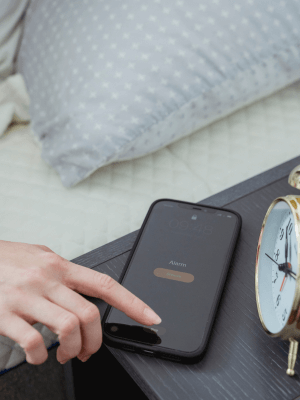
STEP 4: ESTABLISH A RELAXING BEDTIME ROUTINE
How to increase rem sleep — create a relaxing bedtime routine:
- Take a warm bath or shower.
- Use a weighted blanket or another calming sensory tool.
- Practice relaxation techniques like deep breathing, meditation, or yoga.
- Write in a journal: Jotting down thoughts or feelings before bed can help calm the mind and promote relaxation.
- Stretching: Doing a few simple stretches before bed can help release tension in the muscles and promote relaxation.
- Use aromatherapy: Scents like lavender, chamomile, and vanilla are known for their relaxing properties. You can use essential oils, candles, or aromatherapy diffusers to create a relaxing atmosphere.
- Drink herbal tea: Certain types of herbal tea like chamomile or valerian root can help promote relaxation and better sleep.
- Listen to calming music, a relaxing audiobook, or sleep sounds.
- Try a guided meditation or progressive muscle relaxation exercise.
- Practice gratitude journaling or other positive reflection exercises
- Listen to a sleep-focused podcast or audiobook
- Practice gentle yoga or stretching exercises to release tension in the body
By incorporating these activities into your bedtime routine, you can create a relaxing and peaceful environment that promotes better sleep.
Remember, consistency is key when it comes to establishing a bedtime routine, so try to stick to the same activities every night to signal to your body that it’s time to wind down and sleep.
STEP 5: EXERCISE REGULARLY
Regular exercise can help improve sleep quality and duration. Exercise can reduce stress and anxiety, which are common factors that can interfere with sleep. Additionally, exercise can help regulate our internal clock and promote feelings of tiredness at night.
However, it is important to avoid exercising too close to bedtime as it can leave you feeling energized and awake. Be sure to finish exercising at least a few hours before bed to give your body time to wind down and prepare for sleep.
Incorporating regular exercise into your routine can greatly improve your sleep quality and overall health.
Even just getting in your steps is so impactful to your health and will help you sleep better at night.

STEP 6: WATCH WHAT YOU EAT AND DRINK BEFORE BED
Avoid heavy or spicy meals, as well as caffeine, nicotine, and alcohol in the hours leading up to bedtime.
- Avoid eating heavy or spicy meals Spicy and acidic foods can cause heartburn and indigestion, which may keep you awake at night. High-fat foods take longer to digest and can cause discomfort and indigestion, leading to poor sleep. It is best to avoid heavy or fatty meals before bedtime.
- Avoid sugary foods – Eating sugary foods or drinks before bed can cause a spike in blood sugar levels, which can interfere with sleep. It can also lead to weight gain and other health issues.
- Avoid spicy and acidic foods – Spicy and acidic foods can cause heartburn and indigestion, which can keep you awake at night. If you have a sensitive stomach, it’s best to avoid these foods before bed.
- Avoid high-fat foods – High-fat foods take longer to digest and can cause discomfort and indigestion, which can disrupt sleep. It’s best to avoid heavy or fatty meals before bedtime.
- Avoid Caffeine – Consuming caffeine before bed can interfere with your ability to fall asleep and stay asleep. Caffeine is a stimulant that can keep you awake and alert, making it difficult to wind down and relax before bedtime.
To promote better sleep, it’s recommended to avoid consuming these substances before bed. Instead, consider drinking herbal tea like chamomile or valerian root, which can help promote relaxation and better sleep.
STEP 7: REDUCE STRESS AND ANXIETY
Stress and anxiety can greatly impact sleep quality. When a person is feeling stressed or anxious, it can be difficult to relax and fall asleep.
They may wake up frequently throughout the night or have trouble staying asleep. Stress and anxiety can also lead to physical symptoms such as muscle tension and increased heart rate, which can further disrupt sleep.
One of the best ways how to increase rem sleep is to address the root causes of stress and anxiety and develop strategies to manage them.
This can include practicing relaxation techniques like deep breathing, meditation, or yoga, as well as creating a relaxing bedtime routine that includes activities like reading or taking a warm bath.
Additionally, it may be helpful to seek support from a mental health professional or counselor to address underlying sources of stress and anxiety.
Practice relaxation techniques like deep breathing, meditation, or yoga to help calm your mind and reduce stress.
By making these simple changes, you can greatly improve your sleep quality and wake up refreshed and energized.

Sweet Dreams!
Getting a good night’s sleep is critical to maintaining good health and overall well-being. By following the tips and tools outlined in this article, you can greatly improve your sleep quality and wake up refreshed and energized. R
Remember to stick to a consistent sleep schedule, create a sleep-conducive environment, avoid electronic devices before bedtime, establish a relaxing bedtime routine, exercise regularly, watch what you eat and drink before bed, and reduce stress and anxiety.
By making these simple changes, you can greatly improve your sleep quality and overall health.
Now you know how to increase your rem sleep!
